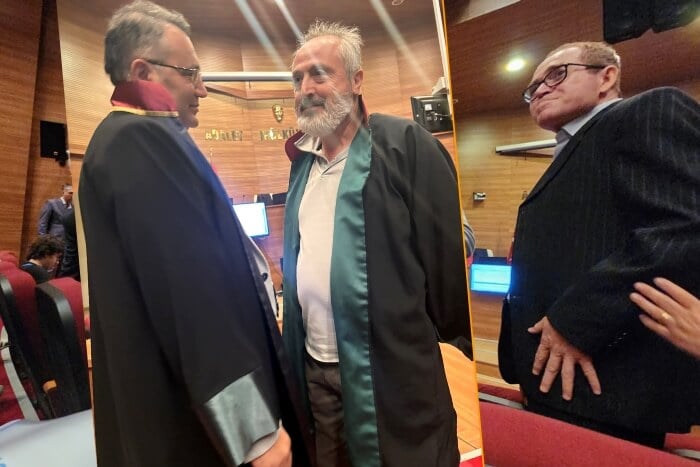A number of rights organizations in Europe have in a letter called on the Council of Europe to urge the Turkish government to abide by a European Court of Human Rights (ECtHR) ruling concerning a teacher that will have legal consequences for hundreds of thousands of other people.
The Germany-based Cross Border Jurists, the Justice Square Foundation headquartered in the Netherlands, and The Arrested Lawyers Initiative and Solidarity with Others, both in Belgium, in their joint letter called on the CoE Committee of Ministers to take measures to ensure the implementation of the ECtHR decision on Yüksel Yalçınkaya.
Together with 3 international human rights organisations based in Europe, we have notified the Committee of Ministers of the Council of Europe about the unlawful verdict of the Kayseri 2nd Court of Assize, which unlawfully disregarded the ECtHR's Yüksel Yalçınkaya judgement. https://t.co/JF23djv4uA
— Solidarity with OTHERS (@OthersInfo) September 14, 2024
A local court’s decision last week which again convicted Yalçınkaya of terrorism although the Grand Chamber of the ECtHR found a violation of his fundamental rights last year has apparently prompted the rights groups to make a call to the CoE.
The Kayseri 2nd High Criminal Court handed down a prison sentence of six years, three months to Yalçınkaya on charges of terrorist organization membership in the second hearing of his retrial on September 12. It was the exact same sentence the teacher was given in 2017 and successfully challenged at the ECtHR, with the court issuing a landmark judgement in September 2023.
Yalçınkaya is one of tens of thousands of people who were purged from public service and arrested due to alleged links to the faith-based Gülen movement in the aftermath of a coup attempt in July 2016.
The Gülen movement is accused by the Turkish government and President Recep Tayyip Erdoğan of masterminding the failed coup and is labeled as a “terrorist organization,” although the movement denies involvement in the coup attempt or any terrorist activity.
In their letter, the rights groups called on the CoE Committee of Ministers to take urgent and strong action for the implementation of the ECtHR’s Yalçınkaya ruling by Turkish courts and to put the Yalçınkaya case on the agenda of its upcoming regular meeting in December, when supervision of ECtHR judgements is conducted.
They also called on the Committee of Ministers to adopt an interim resolution with concrete suggestions to Turkey, to keep the issue on the agenda of its quarterly human rights meetings, invite the Turkish government to regularly and adequately inform the Committee of Ministers about domestic practices by providing samples of reasoned conviction decisions and urge Turkey to take steps, including all necessary legal measures and to address the systemic problem and resolve persistent issues related to the ongoing and finalized cases similar to those of Yalçınkaya.
The ECtHR’s Grand Chamber decided in September 2023 that Turkey had violated three articles of the European Convention on Human Rights in the case of Yalçınkaya: Article 6, which concerns the right to a fair trial; Article 7 on no punishment without law; and Article 11 on freedom of assembly and association.
The Grand Chamber based its ruling on Yalçınkaya’s alleged use of the ByLock mobile phone app; membership in a labor union and an association affiliated with the faith-based Gülen movement; and having an account at the now-closed Bank Asya, which are all considered signs of membership in the Gülen movement and criminal evidence.
In that judgment the ECtHR underscored that the violations in the conviction were “systemic in nature,” calling on Turkey to take general measures to address the underlying problems, reminding of the existence of over 8,000 similar complaints on its docket.
The Kayseri court’s decision last week came as a disappointment to hundreds of thousands of people who were convicted in trials similar that of Yalçınkaya in the aftermath of the failed coup and were eagerly awaiting the court’s favorable decision with the expectation that it could set a precedent for their own trials.



